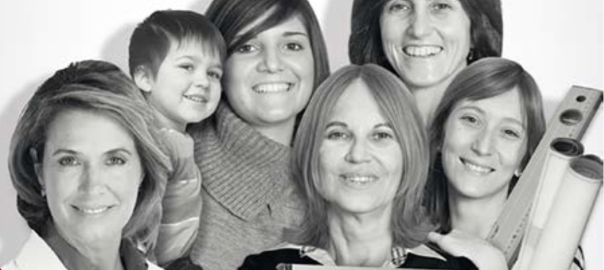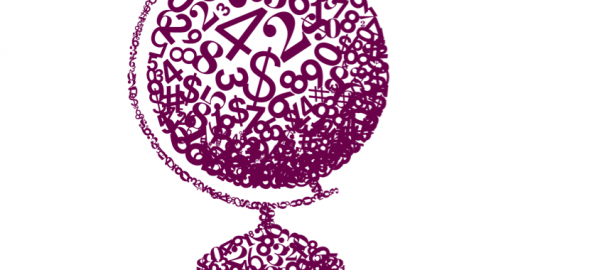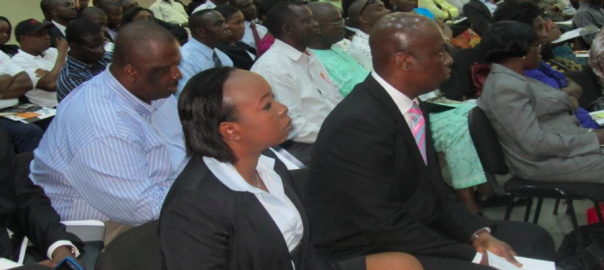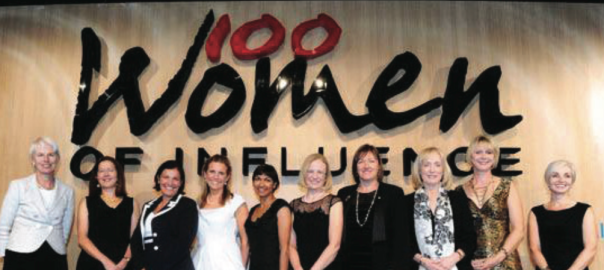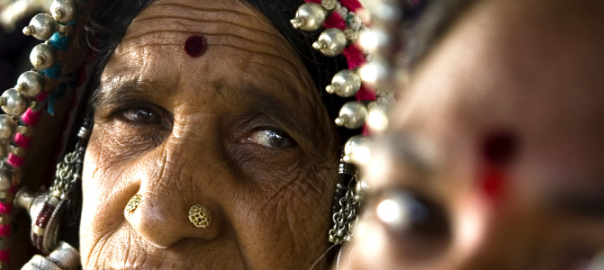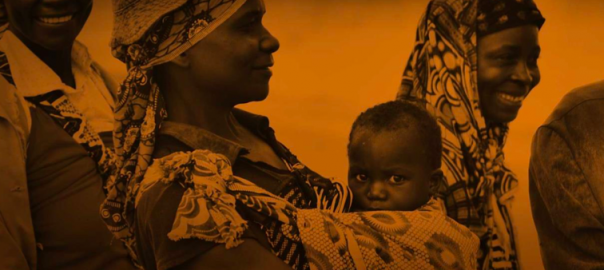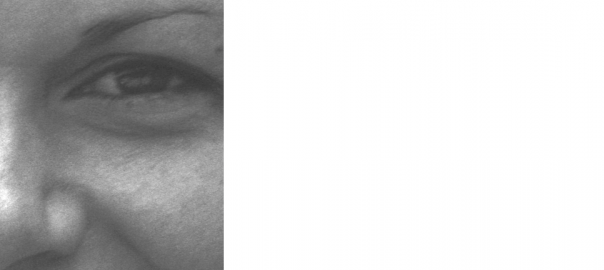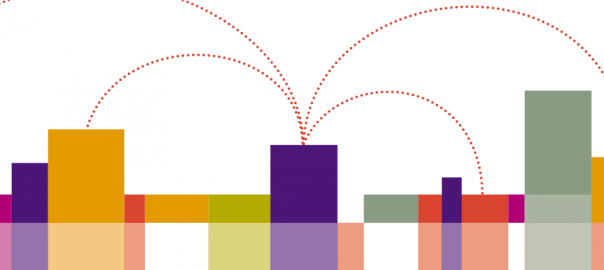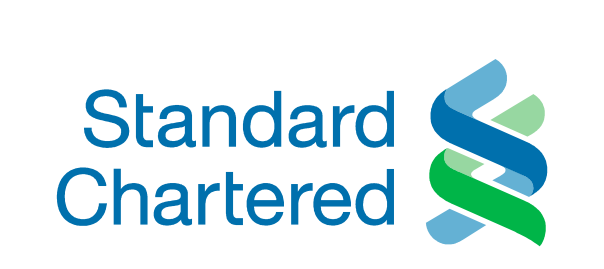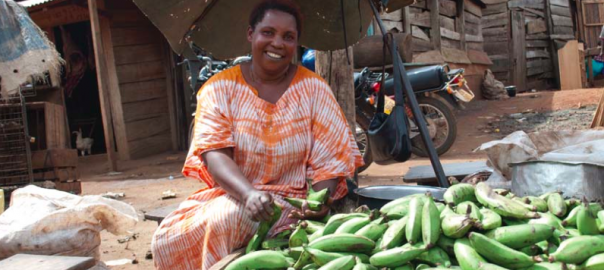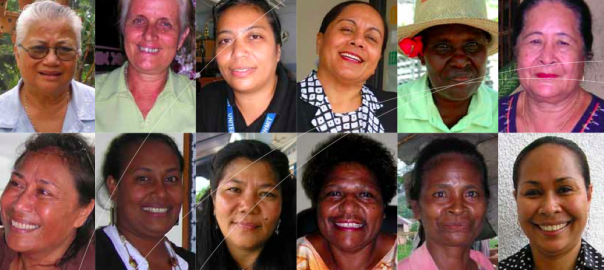Winning the Women’s Market
Winning the Women’s Market is GBA’s How-to Guide, capturing wisdom from members to provide practical examples, methodologies and other key tools for succeeding with the Women’s Market. The full guide is available exclusively to members.
This guide has been updated as of 2019 to include new links to Financial Alliance for Women resources.
GBA Case Study: BLC Bank
The second in the GBA Case Study series on members’ Women’s Market success stories is now available for download. Focusing on Lebanese member BLC Bank, the report offers a detailed look at the Bank’s use of its Women’s Market program as a competitive differentiator and the incredible growth it has experienced through the platform. (Version en español)
Westpac: SME & Women’s Markets
This presentation on Westpac’s approach to SMEs and Women’s Markets was developed for its 2015 Study Tour.
Westpac: Ruby Brand
This presentation on the development of the Ruby brand and its mainstreaming within Westpac was developed for Westpac’s 2013 Study Tour.
Westpac Davidson Institute
This presentation on the Davidson Institute was developed for Westpac’s 2015 Study Tour and discusses the Institute and Westpac’s approach to financial education.
RBS Women in Business
This is a presentation made at the Inclusive Finance Forito during the Foromic on September 2013. It presents the key elements of RBS Women, including access to finance, information, networks and markets.
BLC Bank Women
Empowerment Initiative – SBBN
This is a presentation BLC Bank made to the Small Business Banking Network in February 2013. It presents a comprehensive overview of BLC’s Women’s Market program, including top leadership buy-in (the bank’s head is a signatory to the UN Women’s Empowerment Principles), staff training, marketing & media, collateral-free loans for established (2+ years in operation) businesses, emphasis on building opportunities for women’s networking, business development services, financial literacy, and performance management & evaluation.
Inspiring Women in
Enterprise
This is a presentation RBS made to the Small Business Banking Network in February 2013. It features an overview of the size of the Women’s Market in RBS’s UK home as well as a discussion of the bank’s multiple global initiatives to expand and improve service to women. It also addresses RBS’s commitment to workforce and vendor/supplier diversity.
Delivery of Innovative
Products & Services for Women
This presentation was made to the Small Business Banking Network in February 2013. It is an excellent source of statistics on the SME landscape in Nigeria as well as the approach Diamond takes to defining its customer segments and serving each one. It also offers a discussion of the importance of banks’ provision of networking and educational opportunities for its SME clientele.
Women in Business 2011
This presentation was made to the 2011 GBA membership at that year’s Annual Summit. It offers a good overview of the SME landscape in Uganda, including degree of access to finance and market opportunity for banks. Also included are a comprehensive discussion of dfcu’s Women in Business program and its results to date.
Women in Business
This is a presentation made by Alliance CEO Inez Murray at the IFC/Financial Times “Sustainability Days” conference in February 2013. It is a good source of statistics and information on the business case for serving the Women’s Market, an overview of the steps to take in building a Women’s Market program, and a presentation of the cases of Fleet Bank Boston and Westpac Australia. It also offers an extensive discussion of customer segmentation.
Advancing Women’s Entrepreneurship: Overcoming Constraints to Serving Women in Business
This presentation was made to the Small Business Banking Network in February 2013. It focuses on Ugandan women’s lack of property rights, the difficulties that creates for traditional collateralized lending, and the creative solutions dfcu has devised for its women clients, with an overview of results achieved to date.
Women in Business
Proprietary research commissioned by Westpac examines interest in, and actual ownership of, small and medium enterprises among women, broken down by different age groups and other segments. Among notable findings: Women business owners are very happy with the choices they have made; only half of women who expressed an interest in starting their own business had an actual concrete plan to do so; one in three women felt women tend to help each other more than men do; and one in ten prefers to deal only with other women.
Women Want More from Their Bank
Standard Chartered prepared this presentation for use at its Bangladesh Consumer Banking Academy but it has relevance to every market. Excellent detailed discussion of the female economy and the business case for serving it, of women’s current state of satisfaction with the financial services industry (low) and concrete, actionable tactics for addressing this market.
Acerca de la AGB
Este trabajo muestra la misión de la AGB y ofrendas a nuestros miembros. (English version)
Global Banking Alliance for Women Fact Sheet
The GBA Fact Sheet details the Alliance’s work and offerings to our members. (Version en español)
Estudio de Caso: Westpac
Westpac, un pionero internacional en la provisión de servicios bancarios para la emergente economía de las mujeres, ha reconocido el potencial de las mujeres en Australia durante los últimos 15 años. (English version)
GBA Case Study: Westpac
This case study, the first in the GBA’s series, focuses on founding bank Westpac, which has long focused on the female economy as a critical pathway to long-term success. (Version en español)
Gender Equality
Assessment Paper
This paper by the Copenhagen Consensus Center examines the benefits and costs of the gender equality targets for the post-2015 development agenda.
Women in Enterprise: A
Different Perspective
According to this detailed study of UK women and entrepreneurship produced for RBS by Aston Business School, women do not have any individual or collective entrepreneurial deficit. Instead, this report finds that it is a combination of challenge and choice. Whilst there is clearly a cultural challenge, women also choose to use entrepreneurship differently.
Unconscious Bias
Revealed as the Missing Piece in the Gender
Equality Puzzle
This press release features key findings from research conducted by Westpac on unconscious bias among professionals in Australia.
Promoting Women’s
Economic Empowerment – What Works?
A World Bank review of rigorous evaluations of interventions that seek to empower women economically, showing that the same class of interventions has significantly different outcomes depending on the client.
Garanti Bank SA: Combining SME Banking Excellence with a Proposition for Women Entrepreneurs in Turkey
This case study from the World Bank and IFC explores how Garanti leaders decided to focus on women entrepreneurs, documents and analyzes the bank’s efforts to build a profitable and sustainable “women in business” franchise, and provides insights into how Garanti tapped into its market leading SME Banking franchise to more effectively target women in business.
Investing in the Power of Women: Progress Report on the Goldman Sachs 10,000 Women Initiative
A new report by Babson College on the Goldman Sachs 10,000 Women program found that training and education for women entrepreneurs positively affects emerging economies by increasing revenues and creating jobs, expanding women’s contributions to their communities, and informing their leadership styles.
Women-Owned SMEs: A Business Opportunity for Financial Institutions
This report seeks to estimate the global and regional size of the women-owned SME market for financial services operating in the formal sector. It looks at the financing gap they face, as well as common financial and non-financial barriers faced by women entrepreneurs. The report also provides an estimate of the IFC’s global reach to formal women-owned SMEs.
Las Pymes de América
Latina el Caribe: Cerrando la Brecha Para los Bancos de la Región
Este informe es la versión española del documento encontrado aquí.
SMEs in Latin America and the Caribbean: Closing the Gap for Banks in the Region
This report — a collaboration between the IDB’s Multilateral Investment Fund, Inter-American Investment Corporation and the Structured and Corporate Finance Department, as well as the Latin American Banking Federation (FELABAN) — presents general results of the sixth survey of 100 banks across 21 countries in Latin America and the Caribbean. It includes a detailed analysis of the responses according to the size and location of the entities, as well as other behaviors and aspects of the SME segment.
A Business to Call Her Own: Identifying, Analyzing and Overcoming Constraints to Womens’ Small Businesses in Latin America and the Caribbean
This study by the IDB’s Multilateral Investment Fund identifies key barriers to women’s businesses globally and evaluates the degree to which they constrain women’s business growth in Latin America. These barriers include a lack of access to financial products and services, risk aversion, social conventions, family responsibilities, education, and training and technology.
Women’s Entrepreneurial Venture Scope
WEVentureScope, put together by the Economist Intelligence Unit and commissioned by the IDB’s Multilateral Investment Fund, assembles indicators assessing the areas of business operating risks, the entrepreneurial business environment, access to finance, access to education and training and availability of social services to identify the best places for a woman to start and grow a business in the Latin America and Caribbean regions.
National Women’s Business Council 2012 Annual Report
This report describes progress and key metrics for women’s economic status during 2012, with many useful statistics and infographics. NWBC is an organization that cooperates with other research organizations, including GBA member Womenable.
Connectivity: How Mobile Phones, Computers and the Internet Can Catalyze Women’s Entrepreneurship
This case study by the Cherie Blair Foundation for Women translates insights on how women in India are using mobile technology into recommendations for the private sector, government and nongovernmental groups to encourage women to start, strengthen and sustain businesses by using ICTs. These include making women a core part of business strategies, designing policies that incentivize public-private partnerships, and drawing on the expertise and experience of local organizations that are already working to provide poor women with income-generating opportunities.
Mobile Value Added
Services: A Business Growth Opportunity for Women
Entrepreneurs
This report by the Cherie Blair Foundation for Women finds that micro-entrepreneurs, representing 98% of entrepreneurial activity in the three markets the report examines (Egypt, Nigeria and Indonesia), offer the biggest opportunity for mobile value-added services adoption.
Women Entrepreneurs in Mobile Retail Channels:
Empowering Women,
Driving Growth
In this report, the Cherie Blair Foundation for Women investigates the gender composition of the “mobile value chain” in 11 different markets around the world. The report examines the current level of women’s participation in the MVC and the benefits of such participation both for mobile network operators and for women entrepreneurs.
Faire Progresser L’Inclusion Financiere des Femmes en Afrique
Sur le continent africain, où le niveau global d’inclusion financière est déjà faible, il est particulièrement difficile pour les femmes d’accéder aux services financiers par rapport aux hommes. Ce document de politique générale expose une série de recommandations pour les décideurs politiques, à savoir les entités gouvernementales, les banques centrales et les autorités de réglementation, destinées à traiter cette question.
Advancing African Women’s Financial Inclusion
On the African continent, characterized by a low level of financial inclusion overall, the lack of access to financial services for women is acute when compared to that of men. This policy brief by GIZ and Alliance member New Faces New Voices lays out a set of recommendations for policy makers, central banks and other regulatory authorities that are designed to tackle this issue.
Women in Enterprise:
A Different Perspective
This Royal Bank of Scotland survey of characteristics of the women’s entrepreneurship market in the UK finds evidence that women-owned firms outperform men’s in many cases. Among other notable findings: Women-led businesses are significantly less likely than men’s to use external sources of financing, even when other factors are controlled.
Promoting Women’s
Economic Empowerment: The Learning Journey of Standard Chartered Bank
Standard Chartered started to think about a coordinated approach to addressing gender around 2005, and it has developed an innovative set of initiatives for women in its workplace, in its communities and for its female customers. The bank views all three strands as important for leveraging the Women’s Market and has quickly turned this view into a business imperative and key part of its customer strategy.
Africa: Women’s Economic Empowerment Opens up a World of Opportunity
This research note from Standard Chartered highlights the pivotal role that women can play in Africa’s future growth. Research has shown that when economically empowered, women are more likely to lower household poverty and to invest money in the future of human capital in society.
Solutions for Financial Inclusion: Serving Rural Women
This 15-page report from Women’s World Banking highlights the specific gender-based social, cultural and legal barriers that rural women face in accessing and using financial services in Uganda, and examines the operational challenges to sustainably serving this market.
Doing Business: Women in Africa
This report from Alliance member SELFINA profiles seven women entrepreneurs from across Africa and explores regulatory and other obstacles they overcame to create and expand enterprises.
Strengthening Access to
Finance for Women-Owned SMEs in Developing
Countries
As access to finance is repeatedly identified as a major constraint to women entrepreneurs, this GPFI and IFC report sets out to analyze the issues involved in improving access to finance for women-owned businesses. It also aims to identify scalable financing models that can be replicated in G20 and interested non-G20 countries looking to increase the opportunities of women-owned businesses as those nations further develop their private sector.
Women in Business: Drivers of Development
This wide-ranging IFC report examines women’s economic activity and workforce participation in multiple geographics and via multiple dimensions: Women as Leaders, Women as Entrepreneurs, Women as Consumers, Women as Employees, Women as Stakeholders.
Women, Business and the Law: Removing Barriers to Economic Inclusion
This World Bank report measures and compares gender parity in 141 economies via legal differentiations on the basis of gender, covering six areas: accessing institutions, using property, getting a job, providing incentives to work, building credit and going to court.
Embedding Gender in
Sustainability Reporting
This IFC report highlights some of the existing and emerging business drivers for improving practices and reporting on material gender issues.
Gender Dimensions of
Investment Climate
Reform
This IFC guide offers solutions and encourages change by providing policymakers and practitioners with tools needed to focus on the potential of women entrepreneurs. It also provides thought leadership on common policy and regulatory issues that women entrepreneurs face and analyzes key investment climate areas for growth with a gender lens.
Economic Opportunities for Women in the Pacific
This comprehensive IFC and AusAID report showcases successful female entrepreneurs from seven Pacific Island countries and discusses their common challenges, which include remoteness and isolation that results in high transport costs, a small domestic market, and political and civil instability.
Banking on Women in
Business: Exim Bank
This IFC Case Study on Exim Bank provides a brief overview of the increasingly competitive financial services sector in Tanzania, the opportunity that women-owned small & medium enterprises represent, and possible tactics for tapping the woman-owned SME market.
Banking on Women
in Business: Access Bank
This IFC Case Study offers a brief description of the business landscape for women in Nigeria, as illustrated by the story of Muni Shonibare, a Nigerian woman entrepreneur with a furniture-making business, whose clients included Mobil and Hilton Hotels. Access Bank provided her with $800K in expansion capital.


